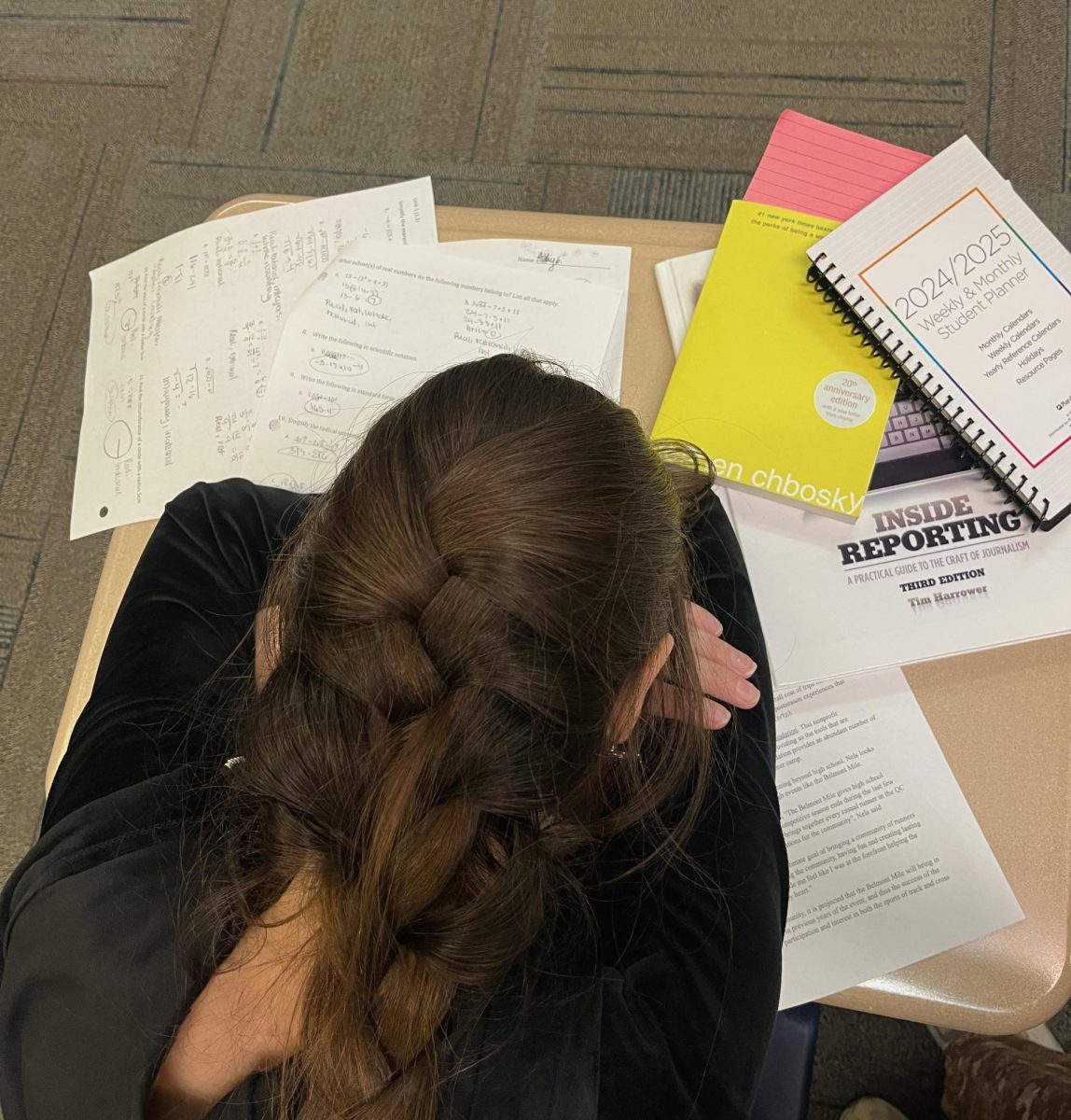As students nationwide begin the abrupt transition from summer into the demanding school year, many students face a big challenge: a significant decline in their mental health.
During the summer months, teenagers were free from homework obligations, which allowed them to prioritize their hobbies and social network. The availability of free time for self-care and the pursuit of personal interests benefited their psychological well-being.
But once they returned to school, the sudden influx of assignments and quizzes led to distress and anxiety.
Nearly 49% of highschool students reported dealing with a substantial amount of stress daily. To a certain extent, stress can be a positive learning experience; however, students deal with a disproportionate amount of it, especially with sports and extracurriculars after school. “Going straight to school and having practice is very tiring. I am physically and mentally tired, I continue getting drained more and more each day,” junior varsity cheerleader Reyna Tewkesbury reported.
A majority of the day is spent on required educational activities, sports, clubs, homework and volunteer hours, which strain students’ social lives and mental health. “Once the school year started, I didn’t have any time to focus on myself. I have no rest days which caused my stress to go up,” Tewkesbury stated.
Adolescence is an important time for students as their mental health and physical appearance go through tremendous changes. Returning to school under these circumstances can result in insecurity about an individual’s body and appearance. This vulnerability may generate an excessive amount of stress.
A survey performed on 200 Bellaire high schoolers revealed some students spend up to eight hours completing homework on school nights. “Teachers expect so much out of us, and when we don’t do what they expect we get looked down upon and punished for it because you’re not a star student,” junior Bridgette Dotson claimed.
Dotson is student leader of the Gray Matters organization at PV. Gray Matters aims to promote positivity for student mental health. Homework anxiety is the most common concern for 61% of students referring to counseling.
Schools can offer a wide variety of options for students struggling with the transition back to school. “Gray matters offers an environment where you don’t have to worry about school. And I think that teachers in general need to be more understanding about mental health so they can see the signs when a student is struggling,” Dotson stated.
There are also steps students are able to take on their own to achieve a better school experience. Gradually adjusting bedtimes at the end of summer and into the beginning of the school year can help create routines to prevent stress and reset someone’s internal clock.
Practicing self-care and taking time to ensure someone is fully relaxed and ready to recharge can help create a sense of security during stressful moments. Setting positive intentions for the next day and preparing for work can increase calmness and purpose.
The transition into the school year causes many students an overwhelming amount of stress. However, there are strategies students can implement to considerably lower the amount of anxiety that school brings.









